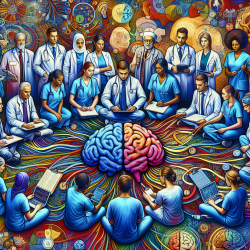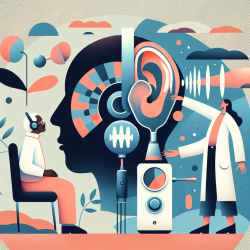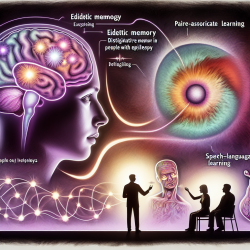In the ever-evolving field of healthcare, staying ahead requires continuous learning and adaptation. One area that holds significant promise for improving patient outcomes is the integration of neurology and psychiatry in educational curricula for healthcare professionals. The research article "Integrating Neurology and Psychiatry throughout Educational Curricula for Healthcare Professionals" sheds light on how bridging these disciplines can enhance practitioners' skills and ultimately lead to better patient care.
The Need for Integration
The traditional separation of neurology and psychiatry in medical education has led to a fragmented understanding of brain disorders. Neurologists focus on the anatomical changes in the brain, while psychiatrists emphasize mental function. This division can result in mismanaged or underrecognized comorbid disorders that straddle both fields. By integrating these disciplines, future healthcare professionals can gain a more holistic understanding of brain diseases and their treatment.
Key Outcomes of Integrated Learning
- Improved Diagnosis: Understanding both neurological and psychiatric aspects allows for better diagnosis of complex conditions like Impulse Control Disorders (ICSDs) in Parkinson's Disease patients undergoing dopamine agonist therapy.
- Enhanced Treatment Plans: Integrated knowledge helps clinicians develop comprehensive treatment plans that address both neurological and psychiatric symptoms.
- Collaborative Care: Encouraging interdisciplinary teamwork leads to more effective patient care by combining expertise from both fields.
Implementing Change in Education
The integration should begin at the undergraduate level, where students are introduced to foundational concepts in both neurology and psychiatry. Medical education should further reinforce these connections by combining coursework on neurobiological substrates, pharmacology, and clinical behavior. Residency programs can offer rotations that expose trainees to interdisciplinary cases, fostering collaboration between neurologists and psychiatrists.
Encouraging Further Research
While the integration of neurology and psychiatry holds great potential, it also presents challenges such as curriculum scope and training duration. Healthcare professionals are encouraged to engage in further research to explore innovative ways to overcome these challenges. By doing so, they contribute to a more comprehensive understanding of brain disorders and improved healthcare outcomes.
To read the original research paper, please follow this link: Integrating Neurology and Psychiatry throughout Educational Curricula for Healthcare Professionals.










